
Seven Hills Vineyard, Walla Walla Valley
Yesterday the news broke that Dennis Murphy, owner of Caprio Cellars in Walla Walla Valley, purchased interests in Seven Hills Vineyard and SeVein. Some of these interests were purchased from the Figgins family, owners of Leonetti Cellar, FIGGINS, and Toil Oregon. The rest were purchased from an investment group.
Walla Walla Valley’s founding winery divesting its interests in one of the valley’s oldest and most prestigious vineyards might seem a surprise. However, Chris Figgins, president and winemaking director at Figgins Family Wine Estates, says the reasons are simple.
“Its strategic importance to us has faded as we’ve developed other vineyard sources around the valley,” Figgins says of Seven Hills Vineyard. “Dad and I had been thinking about divesting for a while.”
The Figgins family currently owns and farms over 100 acres of vineyards in Walla Walla Valley, a number that keeps increasing. However, at this point, the family only uses 4 acres out of the 170 at Seven Hills. The acreage the Figgins use at the vineyard has decreased since the family partnered in Seven Hills with Norm McKibben (Pepper Bridge) and Marty Clubb (L’Ecole No. 41) many years ago.
“When we first partnered with Marty and Norm, the bulk of my Merlot came from there,” Figgins says. “Now, I don’t get any. It’s all moved to slightly cooler sites.”
Though no longer an owner of Seven Hills, Figgins plans to continue to receive Cabernet Sauvignon from the vineyard for a series of years while other fruit sources gain vine age. Fruit from Seven Hills has typically gone into the Leonetti Cabernet Sauvignon and, in cooler years, its Reserve wine.
Changing of the guard at Seven Hills and SeVein
Simultaneous to selling its interests in Seven Hills, the Figgins sold their interests in SeVein to Murphy, McKibben, and Clubb. SeVein is a sprawling, 2,700-acre vineyard development project in the southern section of the valley. Bob Rupar also has part ownership.
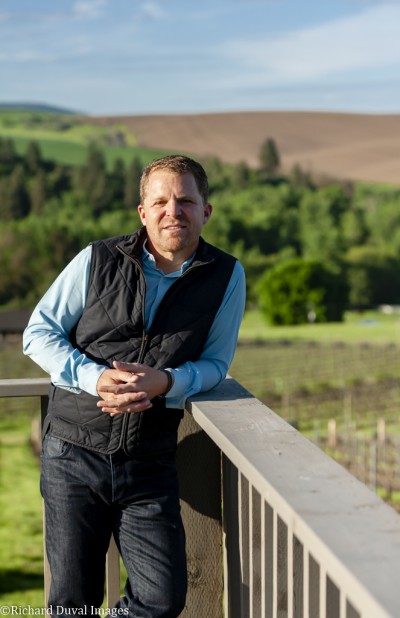
Chris Figgins, Figgins Family Wine Estates.
“It worked for all the partners to have ownership the same in both entities,” Figgins says. “It made sense for us, and the timing was right.”
The Figgins family sale of its interests in Seven Hills and SeVein to Dennis Murphy and others does, however, represent something of a changing of the guard at these important properties. Seven Hills remains a critical vineyard both to Walla Walla Valley and to Washington more broadly. Twenty-five of the state’s wineries receive fruit from the site.
Murphy, CEO at home builder Hayden Homes, owns Cabernet Sauvignon and Merlot planted in 2006 at Eleanor’s Vineyard in Walla Walla Valley. The vineyard is located close to Pepper Bridge Winery. He also owns Santinella Vineyard in the SeVein project and part of Octave Vineyard, also in SeVein. Given that Murphy’s use of sites in SeVein is increasing while the Figgins family’s is decreasing, the sale made sense for both parties.
Figgins family moves up
In the last 25-plus years, Figgins has focused the family’s fruit sources on estate sites rather than purchasing fruit from others. He has also launched two wineries, FIGGINS and Toil Oregon.
Part of the reason for selling the family’s interests in Seven Hills was the decrease in its importance as a fruit source. Another consideration was to achieve an important goal with the family’s estate sites.
“It follows my belief in the future of higher elevations in the valley,” Figgins says.
This belief started after the 1996 vintage. That year, a freeze damaged many vineyards in the valley. The exception was vines at higher elevation.
In 1997, Figgins planted Mill Creek Upland Vineyard. Elevations at this site range from 1,500 to 1,600 feet above sea level, high by the valley’s current standards. Over time, as the family established more vineyards, other considerations started to come into play for moving higher up.
“It was very intentional to go higher for freeze protection,” Figgins says. “But as we were going along in vintages, we’ve realized that it’s also beneficial from the perspective of global warming.”
Temperatures at higher elevation can be cooler during the heat of the day. However, they also remain warmer at night as cold air sinks. Additionally, higher elevation sites produce different fruit that can have higher acidity and, potentially, more tannin structure. Other winegrowers in Washington have recently been moving higher as well.
Expanding estate properties
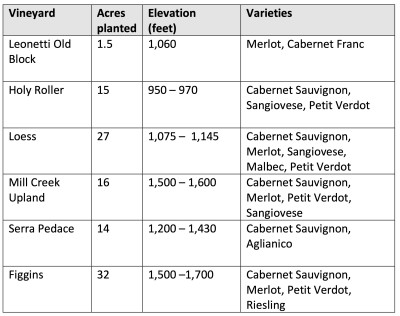 Figgins’ use of Seven Hills fruit has decreased in large part due to the growth of its estate properties. The family has been expanding plantings at Serra Pedace Vineyard in the SeVein project. The site is located between 1,200 and 1,430 feet in elevation.
Figgins’ use of Seven Hills fruit has decreased in large part due to the growth of its estate properties. The family has been expanding plantings at Serra Pedace Vineyard in the SeVein project. The site is located between 1,200 and 1,430 feet in elevation.
The vineyard has 42 plantable acres. At present, only 14 are planted, so there is considerable room for growth. While the site is close as the crow flies to Seven Hills Vineyard and is only a few hundred feet higher in elevation, it produces significantly different fruit.
“It’s up in the wind,” Figgins says of the site. “It’s significantly cooler in the spring, especially when the wind is blowing. It’s a little more mountain fruit.”
Figgins, who is currently putting the finishing touches on the FIGGINS winery and tasting room due to open next spring, recently purchased acreage in the Rocks District. In 2022, he also purchased the adjacent property, Waliser Vineyard. This site was established by Tom Waliser in 1998. It is the second oldest vineyard in the Rocks District. (Cayuse Vineyards’ Cailloux Vineyard, planted in 1997, is the oldest.) This effectively doubled the acreage at this vineyard, named Holy Roller.
The selling of the family’s interests in Seven Hills and the SeVein project have one final important aspect. These changes give the family fruit sources that they own 100%.
In a valley full of wineries and a state filled with many more, this guarantees the winery has an important differentiator for decades to come. Figgins says there is also an aspect of estate planning with selling their interests in Seven Hills and SeVein.
“I’m trying to get everything aligned and thinking about the next generation coming up behind me,” he says. Figgins has a daughter who is finishing high school and a son who recently graduated from college.
This article has been updated to correct the year that Waliser Vineyard was planted.
All images copyright Richard Duval.
NOTE: Northwest Wine Report is wholly subscriber funded. The site currently has 70% of the minimum number of paid subscribers needed to be financially viable. Please subscribe to support continued independent content and reviews on this site.
To receive articles via email, click here.



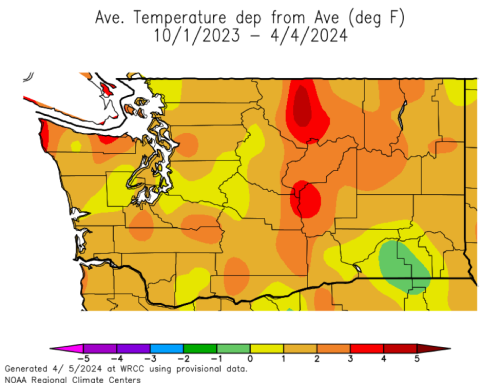
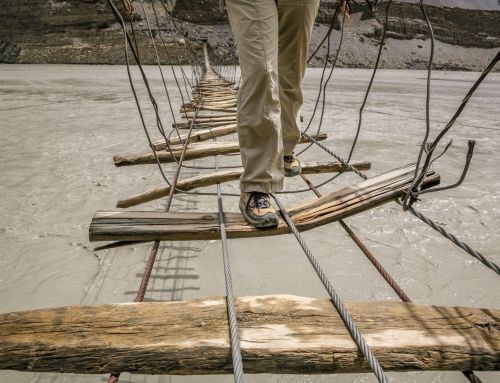

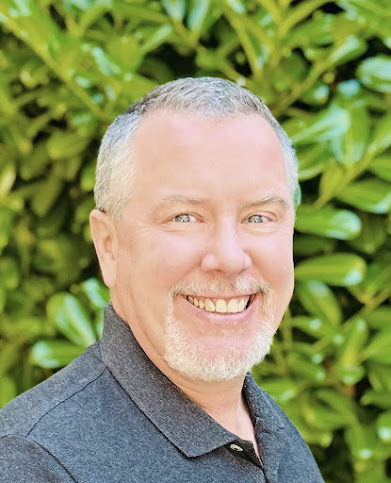
Leave A Comment